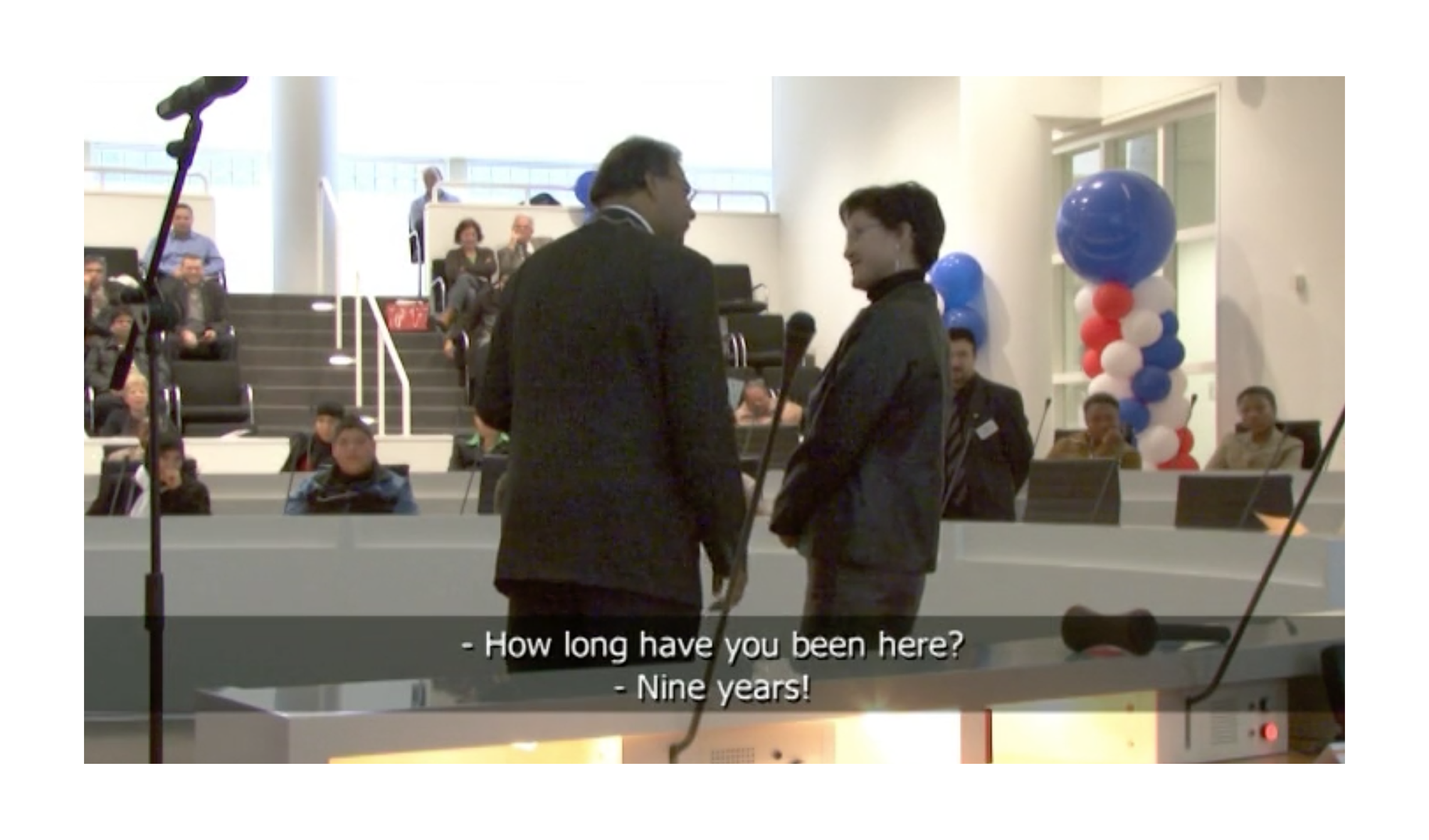Limina
HD
film on Digital Betacam, 23 min, 2008
Courtesy Mario Rizzi & Van Abbemuseum, Eindhoven, the Netherlands
My film installation for 2008 exhibition “Be(com)ing Dutch” in Van
Abbemuseum, Eindhoven was called “Gefeliciteerd”, the congratulating expression,
which is used to greet immigrants when they get Dutch citizenship.
“Gefeliciteerd” comprised six films questioning the idea of national
identity in the Dutch multiethnic society. They were installed in three small
wooden houses, as those assigned to asylum seekers in the Netherlands.
In “Limina”, one of those films, aliens are becoming Dutch citizens,
while being taught how to perform their new self. Habits and customs that
constitute and hold communities together turn into ridiculously empty gestures
when exposed as pure performative acts.
Mario Rizzi is an Italian artist and filmmaker. His work was shown in art institutions and film festivals, including Galerie Wedding, Berlin (2017); Badischer Kunstverein, Karlsruhe (2016); MAXXI Museum, Rome (2015); MoMA PS1, New York (2014); Kunstverein Hannover (2013); Analix Forever, Geneva (2010); Espace Electra; Paris (2007); Taipei Biennial & Van Abbemuseum, Eindhoven (2008); MoMA, New York & Tate Modern, London (2007); Istanbul Biennial (2005); Sydney Biennale (2004). In 2018 Rizzi won the Italian Council Award after being nominated by five international art institutions; in 2017 the Tokyo Metropolitan Foundation for History and Culture Prize; in 2012 the Production Program Award of the Sharjah Art Foundation; in 2005 the Best Artist Prize at Sharjah Biennial; in 2002 the Internationales Atelierprogramm Kuenstlerhaus Bethanien in Berlin. His films were selected by Berlin Film Festival (2008 and 2013), Ankara Film Festival (2015 and 2016) and Dubai Film Festival (2013). His work is in public collections, including the MAXXI Museum in Rome, the Maison Européenne de la Photographie, Paris and the Museum of Modern Art (MoMA) in New York. In 2017 Archive Books published a monograph on his work, “Bare Lives”, with texts by eminent scholars, such as Hamid Dabashi and Bonaventure Ndikung.

